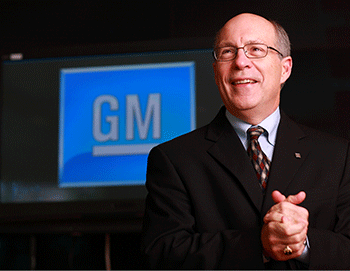DETROIT — Tim Lee is General Motors executive vice president Global Manufacturing and chairman of GM China. His responsibilities include manufacturing, labor and manufacturing engineering across GM’s global operations, including 171 plants in more than 30 countries on six continents. He also oversees GM’s presence in China, the world’s largest auto market.
Occasioned by his visit to GM’s Arlington (Texas) Assembly Plant today to celebrate the opening of Arlington’s new $200 million stamping plant, Lee spoke about the strategic focus of the company’s far-flung manufacturing operations. GM Arlington is home to the Chevrolet Tahoe and Suburban, GMC Yukon and Yukon XL, and Cadillac Escalade.
How does the opening of the new Arlington Stamping plant fit into GM’s global manufacturing strategy?
The site is part of a growing trend in the automotive industry to locate stamping operations closer to assembly plants to improve quality for our customers, and reduce cost. Arlington is the 10th contiguous stamping plant to come on line in GM’s global operations in the last five years.
What are the benefits of contiguous stamping plants?
Contiguous plants require lower capital investment, reduce logistics and container costs and practically eliminate quality issues common with shipping large sheet metal parts hundreds or thousands of miles. For instance, once Arlington Stamping is fully operational, we expect to reduce our logistics costs by $40 million a year.
When people think of quality, aren’t they talking about performance, reliability and durability? What role does GM’s stamping operations play in supporting GM’s quality initiatives?
Sheet metal is the first thing customers see when they enter a dealership. While we can have the best paint systems in the world, if the sheet metal the paint is applied to isn’t world class, our customers will be disappointed. Shipping these parts long distances increases the chance something can happen to the parts. Contiguous stamping plants help us eliminate that risk by moving parts a matter of feet from assembly, not miles.
With such a large manufacturing footprint –— 171 plants in 31 countries — what is your philosophy on running the business?
Well, I need to learn more languages. Seriously, though, I prefer to take a more holistic approach to the business. We have terrific employees at all levels in our plants who are empowered to deal with issues at the local level. My job and the job of the other manufacturing leaders is to ensure that we provide the support systems and processes that the plants need to deliver for our customers.
Contiguous stamping plants is one example of helping our assembly operations by reducing repair and scrap. We are also working across the enterprise with Design, Engineering and our suppliers to improve our partnership so we can produce the world’s best vehicles.
Your holistic approach to manufacturing extends to plant communities. Why is this important?
Working with our employees and union partners, GM makes a difference in the communities in which we operate, economically, environmentally and socially. Our approach is to “drive a better tomorrow” through investments that will make our plant communities safer, smarter and healthier. Tens of thousands of our Manufacturing employees volunteer in their communities and we’ve contributed millions of dollars to local charities. From donating books to children in the inner city or cleaning up a river, GM employees worldwide are helping people and communities in need. I’m proud to be part of our team.












